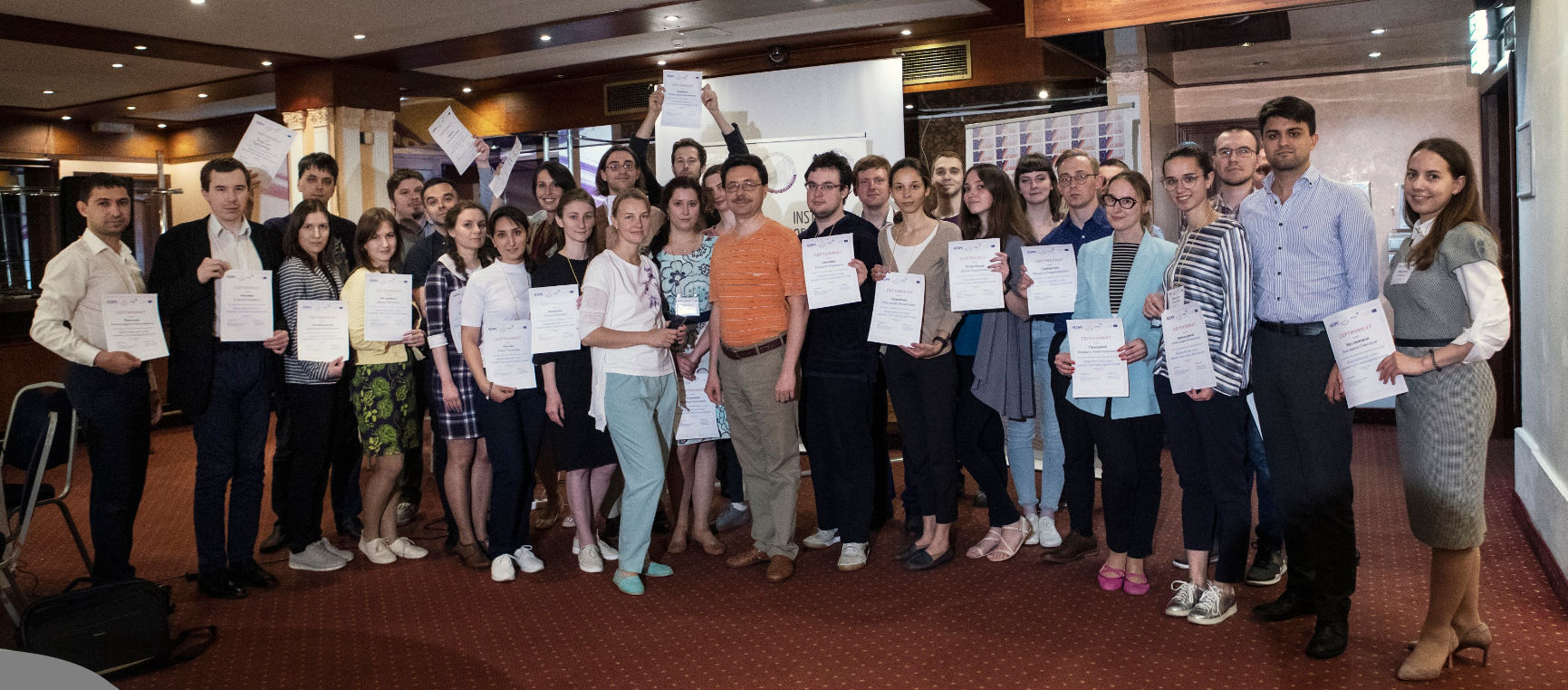Grant Jean Monnet
«UNIVERSITY TEACHERS’ TRAINING TO PROMOTE EXCELLENCE IN EU TEACHING»
UNIVERSITY TEACHERS’ TRAINING TO PROMOTE EXCELLENCE IN EU TEACHING
The project ‘University teachers’ training to promote excellence in EU teaching’ is designed to stimulate scholars, teachers and students to maintain and to develop research & teaching activities in EU studies. The project was implemented with the financial support of Jean Monnet programme (Erasmus+), project 599679-EPP-1-2018-1-RU-EPPJMO-PROJECT.
This innovation project explores intensive interactive teaching methodologies and promotes their implementation in Russian universities. The project also contributes to encouraging young scholars with strong academic potential to specialise in EU studies; to developing existing network for cooperation of Russian scholars & teachers from various regions; to maximise visibility of EU studies & audience reached. Project team unites experts from the most well reputed Russian universities: the Institute of Europe of the Russian Academy of Science, the Moscow State Institute of International relations (MGIMO-University) and the Lomonosov Moscow State University.
A series of methodological seminars was organised in February-May 2019. They were hosted by Moscow leading universities. These events gave professors the opportunity to test the teaching methodology and particular interactive techniques. These events provided comprehensive insight into selected aspects of EU development / activities for young teachers & Ph.D. students of the host universities.
The workshop ‘University’ teachers training’ took place in Moscow on 24-28 June 2019. The workshop was organised in cooperation with the Institute of Europe of the Russian Academy of Science and the Russian Council for International Relations. It united about 40 participants – young teachers & Ph.D. students who teach EU related course in Russian universities. The workshop 1) gave participants profound knowledge of selected aspects of EU development/activities, 2) familiarized participants with intensive interactive & participatory learning techniques and 3) provided participants with guidelines & information sources that would enable them to use these learning techniques while teaching students. All participants received methodological materials of teaching technique used during the workshop (simulation, policy debate, PBL methodology etc.). Besides, all participants received the textbook “European integration”.

The Project develops teaching activities in line with a participative approach based on the experiential learning / learning by doing and other interactive techniques. Training of teachers was specifically focused on the methodological side in order to support teachers in their didactical activity to enable them to construct and use various interactive learning techniques in application to EU studies.
Outputs include e-reader and didactic web platform hosted by AES web site. Didactic web platform includes a repository to share educational material, interactive learning tools developed by project staff & workshop participants, learning objects realized from the seminars video recording.
The key outcome of the project are:
- to improve the knowledge of young university teachers on EU related topics.
- to familiarize young university teachers with the competences based approach, the PBL methodology and other interactive teaching methodologies.
The project expected to have a great multiplicity effect. At the end, the teachers are encourage to use the acquired skills to build didactic modules specifically focusing on the EU and to transfer correct and updated information to their students. This multiplying effect on educational process is expected to be visible in more than 20 Russian universities, including universities in Moscow, Barnaul, Belgorod, Irkutsk, Nizhny Novgorod, Novosibirsk, Perm, Rostov, Sankt-Petersburg, Saratov, Tambov, Tomsk and Tyumen.





